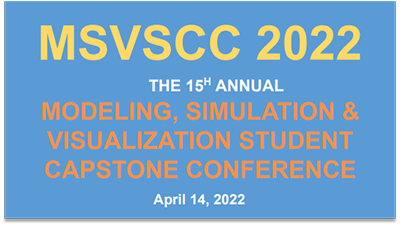Publication Date
2022
Conference Title
Modeling, Simulation and Visualization Student Capstone Conference 2022
Conference Track
Medical Simulation
Document Type
Paper
Abstract
There are many issues regarding the technology used for fall detection gait analysis in the geriatric center of senior patients. The fall detection system used should examine the privacy of the patients and the flexibility of the system. Several researchers have developed fall detection using wearable sensors due to their flexibility and nature of privacy. Most of those developed methods are supervised deep learning methods. However, data annotation is expensive because we use camera video recording and playback of each participant’s recorded video to label the data. Moreover, labelling using a camera recording limits the flexible and private nature of wearable sensor-based fall detection. This paper presents how to use unlabelled data to pre-train our models and use labelled data to fine-tune those pre-trained weights. We collected unlabelled and labelled data and applied self-supervised learning to detect falls. First, we performed pre-training on the unlabeled data using ResNet model. After that, fine-tune and train ResNet using the labelled dataset. The experiment in this study suggested that the best performance can be achieved by using pre-trained weights of unlabelled data from the accelerometer and gyroscope sensors. Furthermore, oversampling and modified loss functions are used to handle the dataset’s imbalance classes. With the ResNet pre-trained weights and re-training using the labelled data, the experiments achieved an F1-Score of 0.98.
Keywords:
Gait analysis, Fall detection, Senior subjects, Self-supervised learning
Start Date
4-14-2022
End Date
4-14-2022
Recommended Citation
Yhdego, Haben and Audette, Michel, "Senior Subject Gait Analysis Using Self-supervised Method" (2022). Modeling, Simulation and Visualization Student Capstone Conference. 3. DOI:10.25776/p8n9-q949 https://digitalcommons.odu.edu/msvcapstone/2022/medical/3
DOI
10.25776/p8n9-q949
Included in
Senior Subject Gait Analysis Using Self-supervised Method
There are many issues regarding the technology used for fall detection gait analysis in the geriatric center of senior patients. The fall detection system used should examine the privacy of the patients and the flexibility of the system. Several researchers have developed fall detection using wearable sensors due to their flexibility and nature of privacy. Most of those developed methods are supervised deep learning methods. However, data annotation is expensive because we use camera video recording and playback of each participant’s recorded video to label the data. Moreover, labelling using a camera recording limits the flexible and private nature of wearable sensor-based fall detection. This paper presents how to use unlabelled data to pre-train our models and use labelled data to fine-tune those pre-trained weights. We collected unlabelled and labelled data and applied self-supervised learning to detect falls. First, we performed pre-training on the unlabeled data using ResNet model. After that, fine-tune and train ResNet using the labelled dataset. The experiment in this study suggested that the best performance can be achieved by using pre-trained weights of unlabelled data from the accelerometer and gyroscope sensors. Furthermore, oversampling and modified loss functions are used to handle the dataset’s imbalance classes. With the ResNet pre-trained weights and re-training using the labelled data, the experiments achieved an F1-Score of 0.98.


